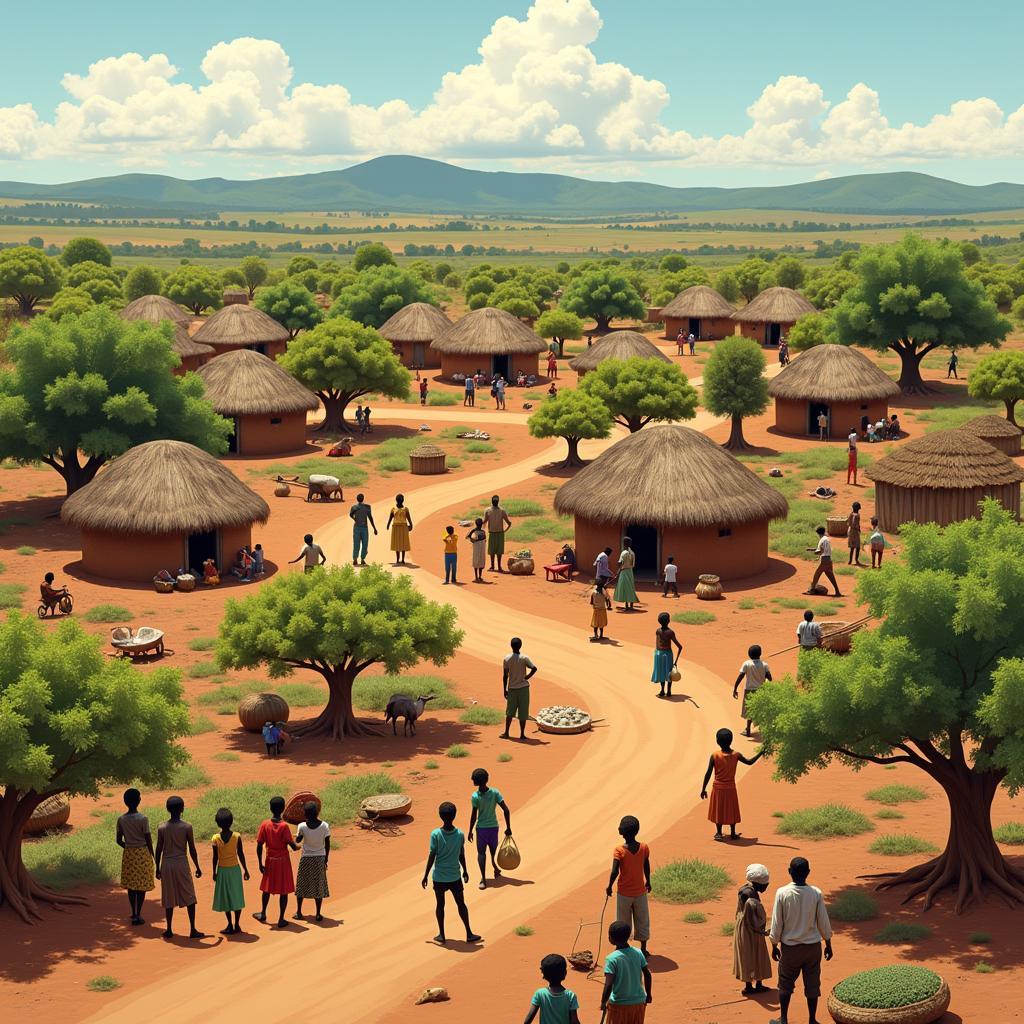Understanding the African Charter on Human and Peoples’ Rights (African Charter UNTs)
The African Charter on Human and Peoples’ Rights (African Charter Unts) stands as a cornerstone of human rights protection across the African continent. This vital document outlines fundamental rights and freedoms, aiming to ensure dignity, equality, and justice for all Africans. It’s a crucial framework shaping legal and social landscapes across the continent.
A Deep Dive into the African Charter UNTs
The African Charter, officially adopted in 1981, represents a unique approach to human rights, intertwining individual rights with collective responsibilities and emphasizing the importance of community and cultural values. It recognizes both civil and political rights, such as the right to life, freedom of expression, and the right to a fair trial, alongside economic, social, and cultural rights, including the right to education, health, and work. Crucially, the African Charter UNTs also enshrines peoples’ rights, including the right to self-determination, development, and a healthy environment.
What sets the African Charter apart is its inclusion of duties and responsibilities. Individuals are expected to uphold the rights of others and contribute to the well-being of their communities. This emphasis on collective responsibility reflects the communal spirit deeply ingrained in many African cultures.
The Charter also acknowledges the significance of traditional African values and customs in shaping its understanding and application of human rights. It seeks to balance universal human rights principles with the specific cultural context of Africa.
Key Provisions of the African Charter UNTs
The African Charter UNTs covers a wide range of rights and freedoms, striving to address the diverse needs and challenges faced by people across the continent. Some of the key provisions include:
- Right to Life: The Charter guarantees the right to life and prohibits arbitrary deprivation of life.
- Freedom from Torture: It prohibits torture, cruel, inhuman, or degrading treatment or punishment.
- Freedom of Expression: The Charter protects the right to freedom of expression, including the freedom of the press and other media.
- Right to Education: It recognizes the right to education and promotes equal access to educational opportunities.
- Right to Health: The Charter affirms the right to health and encourages states to take measures to improve public health.
- Right to Development: It recognizes the right to development and emphasizes the importance of sustainable development.
The African Charter’s Impact and Challenges
The African Charter has played a significant role in advancing human rights in Africa, providing a framework for legal reforms and advocacy efforts. However, significant challenges remain in its implementation.
Dr. Aminata Sow, a renowned human rights lawyer based in Senegal, states, “The African Charter has been instrumental in raising awareness about human rights and promoting a culture of respect for human dignity. However, translating these principles into tangible improvements in people’s lives remains a constant struggle.”
Poverty, conflict, and political instability hinder the effective realization of the Charter’s provisions. Furthermore, limited resources and weak institutional capacity in some African countries pose obstacles to its implementation.
Another challenge lies in the enforcement mechanisms. The African Commission on Human and Peoples’ Rights, responsible for monitoring and promoting the implementation of the Charter, faces limitations in its powers and resources.
What are the African Charter UNTs?
The African Charter UNTs are the United Nations Treaty Series citation for the African Charter on Human and Peoples’ Rights. This is how the treaty is officially registered and identified within the UN system.
How does the African Charter address women’s rights?
The African Charter specifically addresses women’s rights, prohibiting discrimination based on gender and promoting equal opportunities for women in all spheres of life.
Have you considered the cost of an African hunting safari? Check out african hunting safari prices.
Conclusion
The African Charter UNTs represents a landmark achievement in the pursuit of human rights in Africa. It provides a valuable framework for promoting and protecting fundamental rights and freedoms across the continent. While challenges remain in its full implementation, the Charter continues to serve as a vital instrument for advancing human dignity, equality, and justice for all Africans. The journey towards full realization of the Charter’s ideals demands continued commitment, collaboration, and unwavering advocacy. You might also find useful information regarding african banks in usa.
FAQ
- What is the main purpose of the African Charter? To promote and protect human and peoples’ rights in Africa.
- When was the African Charter adopted? 1981
- What is unique about the African Charter? Its inclusion of both individual and collective rights, and its emphasis on duties and responsibilities.
- What are some of the key rights protected by the Charter? Right to life, freedom of expression, right to education, right to health.
- What is the role of the African Commission? To monitor and promote the implementation of the Charter.
- What challenges does the African Charter face? Poverty, conflict, limited resources, weak enforcement mechanisms.
- How can I contribute to the implementation of the African Charter? By supporting human rights organizations, advocating for legal reforms, and promoting a culture of respect for human rights.
For further support, please contact us at Phone Number: +255768904061, Email: [email protected] or visit our office at Mbarali DC Mawindi, Kangaga, Tanzania. We have a 24/7 customer service team.

